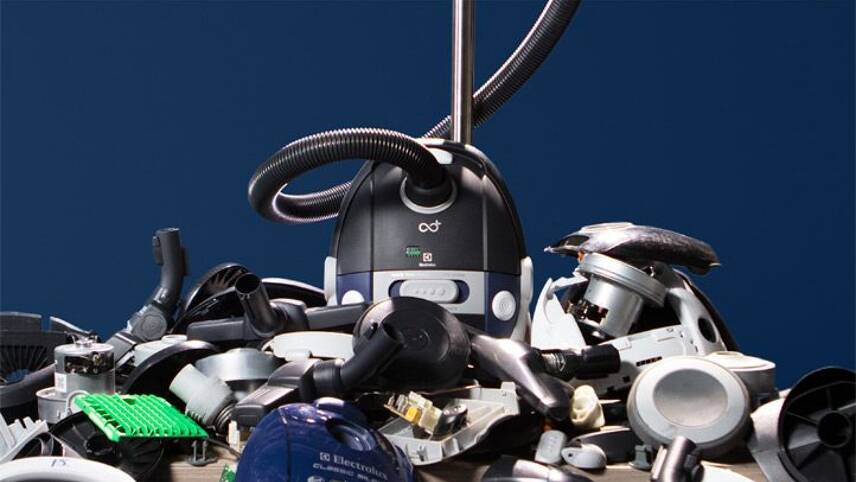Register for free and continue reading
Join our growing army of changemakers and get unlimited access to our premium content

More than 400 million metric tons of plastic are produced globally every year
The new vacuum has been developed in collaboration with Stena Recycling. It features plastics and components made from post-consumer electronic products including hairdryers, computers and other vacuum cleans from Nordic households.
By 2030 all Electrolux product ranges will contain at least 50% recycled materials. The vacuum forms part of Electrolux’s Circular Initiative, which aims to boost the market for recycled plastics alongside alternative materials to virgin plastics.
“We at Electrolux have a strong commitment to reduce our climate impact by 2030 and circularity is a key dimension of this,” the company’s chief executive Jonas Samuelson said.
“The partnership with Stena Recycling is one of the important initiatives we engage in to push ourselves and the industry forward through knowledge sharing and innovation. We want to support consumers in making sustainable choices, and to succeed we need a solid approach to circularity”, says Jonas Samuelson.”
More than 400 million metric tons of plastic are produced globally every year, but less than 12% of this comes from recycled materials. Electrolux has been raising awareness of these issues since 2010 through the Vac from the Sea project.
Decarbonisation process
The Ellen MacArthur Foundation has noted that the transition to a circular economy is vital to putting the world within touching distance of a net-zero carbon economy, namely because focusing on decarbonising the energy sector alone will not be enough.
In fact, analysis from CDP has warned that major consumer electronic and cooling appliance firms, such as Electrolux are failing to innovate technology to spur decarbonisation.
Research from global non-profit CDP assessed 18 publicly listed companies in the cooling sector, which have a combined market capital of more than $550bn on product efficiency, emissions disclosure and spend on low-carbon innovation.
CDP notes that R&D spend in the sector sits at just 2.2% of net sales. Companies such as Schneider Electric, Vesta and CNH Industrial were found to be leaders across the ‘electrical equipment’, ‘industrial conglomerates’ and ‘heavy machinery’ fields by the CDP report, which notes that companies can capture “significant revenue opportunities” by introducing low-carbon technologies.
More broadly, just four of the 18 companies had set targets to reduce emissions across the value chain by 2050. Hitachi and Mitsubishi Electric are targeting an 80% reduction, while Daikin Industries and Electrolux aim to achieve net-zero emissions.
Matt Mace


Please login or Register to leave a comment.